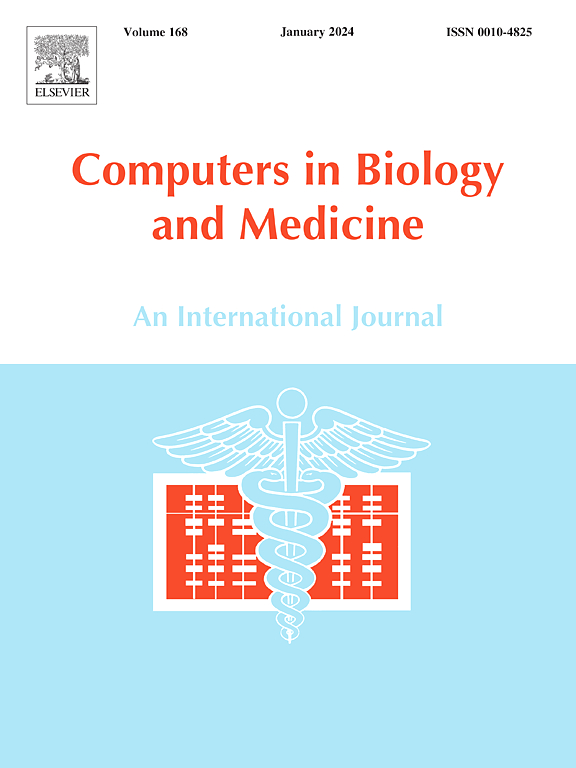基于免疫信息学的基于保守假设结核分枝杆菌蛋白的下一代表位疫苗的构建,以增强结核病控制
IF 6.3
2区 医学
Q1 BIOLOGY
引用次数: 0
摘要
几个世纪以来,结核分枝杆菌(Mtb)一直困扰着人类。卡介苗是唯一可用的结核病疫苗,但它对成人的保护作用有限。因此,迫切需要开发世界范围内控制结核病的通用疫苗。在这项研究中,使用各种计算工具分析了四种保守的分枝杆菌假设蛋白(hp)的免疫学、结构和功能特性。通过IFNepitope 2.0服务器预测四种保守HP抗原的IFN-γ诱导MHC I类和II类结合肽。经过详细的硅片验证,选择了最具免疫原性、无毒、非致敏性的b细胞、CTL和HTL表位,这些表位具有广泛的人群覆盖和保护作用,用于开发新的表位疫苗(IDE)结构。此外,最终构建的疫苗还验证了其抗原性、毒性、过敏原性和溶解度。分子对接和MD模拟分析表明,设计的疫苗与TLR4、MHC-I和MHC-II免疫受体的构象稳定性和高结合亲和力。在硅免疫模拟显示产生高水平的IgG,辅助性t细胞,t细胞毒性细胞,IFN-γ和白细胞介素对抗最终的疫苗结构。因此,IDE疫苗可能是一种强有力的下一代基于表位的候选疫苗,可刺激针对Mtb的体液和细胞反应。然而,需要进一步的动物研究来验证所提出的疫苗结构的免疫原性和生物学效力。本文章由计算机程序翻译,如有差异,请以英文原文为准。
Immunoinformatics-driven construction of a next-generation epitope-based vaccine from conserved hypothetical proteins of M. tuberculosis for enhanced TB control
Mycobacterium tuberculosis (Mtb) has afflicted humanity for centuries. BCG is the only vaccine available for TB, but it shows limited protective efficacy in adults. Therefore, there is an urgent need to develop universal vaccines for controlling TB worldwide. In this study, four conserved mycobacterial hypothetical proteins (HPs) were analyzed for their immunological, structural, and functional properties using various computational tools. The IFN-γ-inducing MHC class I and II binding peptides of the four conserved HP antigens were predicted by the IFNepitope 2.0 server. After detailed in silico validations, the most immunogenic, non-toxic, non-allergenic B-cell, CTL and HTL epitopes with broad population coverage and conservancy were selected for developing a new epitope-based vaccine (IDE) construct. Furthermore, the final vaccine construct was verified for its antigenicity, toxicity, allergenicity and solubility properties. Molecular docking and MD simulations analyses showed conformational stability and high binding affinity of the designed vaccine with TLR4, MHC-I, and MHC-II immune receptors. In silico immune simulation revealed the production of high levels of IgG, T-helper, T-cytotoxic cells, IFN-γ and interleukins against the final vaccine construct. Thus, the IDE vaccine could be a potent next-generation epitope-based vaccine candidate to stimulate both humoral and cellular responses against Mtb. However, further animal studies are needed to validate the immunogenicity and biological efficacy of the proposed vaccine construct.
求助全文
通过发布文献求助,成功后即可免费获取论文全文。
去求助
来源期刊

Computers in biology and medicine
工程技术-工程:生物医学
CiteScore
11.70
自引率
10.40%
发文量
1086
审稿时长
74 days
期刊介绍:
Computers in Biology and Medicine is an international forum for sharing groundbreaking advancements in the use of computers in bioscience and medicine. This journal serves as a medium for communicating essential research, instruction, ideas, and information regarding the rapidly evolving field of computer applications in these domains. By encouraging the exchange of knowledge, we aim to facilitate progress and innovation in the utilization of computers in biology and medicine.
 求助内容:
求助内容: 应助结果提醒方式:
应助结果提醒方式:


